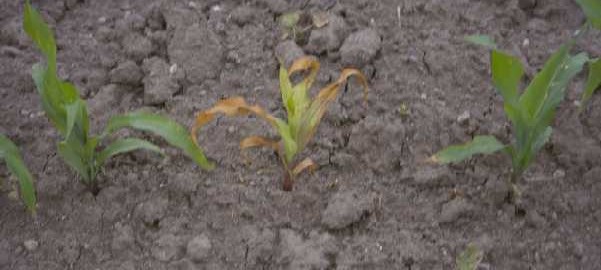
Action Farmers Should Take When Faced With Crop Injury
In the event that a crop is injured, documentation of the damage is necessary. Agricultural producers should be proactive in assessing and recording damage to growing crops. Pictures, records of farming practices, and statements of agricultural experts should be gathered to ensure the success of any legal action that must be taken to recover monetary damages resulting from plant injury outside of a farmer’s control.
When a producer first notices damage to growing crops, pictures or video should be taken of the entire damaged area. Close-up pictures of individual plants may also be beneficial in showing detailed injury to the crop. At this point, it is important that a producer has someone with experience in assessing crop injury take a look at the plants. Agents with the Cooperative Extension Service or private crop consultants can be called to diagnose and document the injury. These experts should be asked to give their written opinion as to the cause of the injury. If chemical damage is suspected, plant samples should be taken and analyzed by a laboratory as soon as possible.
Any producer facing significant crop injury should consider calling an experienced attorney. An attorney should visit the field and view the damaged crop. If a producer is under the impression that a particular product, such as a fertilizer, pesticide, or seed, caused the injury, notify the manufacturer of the product immediately as there are certain laws which may be applicable requiring prompt notice of potential damage.
Records of farming practices are also beneficial in the event that a crop is damaged and a lawsuit must be filed. Purchase records of seed can be used to establish expected crop yield. Documentation of seed variety as well as the purchase and application of chemicals and fertilizer will provide evidence that a producer has followed proper farming practices and demonstrate that crop damage or injury was not the result of improper action on the part of the producer.
It is further recommended that a producer keep copies of product labels and receipts demonstrating the purchase of chemicals, along with all written information provided to the producer that discusses the use or application of a chemical. There have been documented cases where chemicals did not live up to their guarantees and, in reality, led to significant crop damage. As a result, good record keeping can protect a farmer in the event that properly applied chemicals result in unexpected injury to growing crops.
If you would have questions regarding possible crop damages or an action to recover for your financial losses resulting from such damage, feel free to contact the Banks Law Firm at (501) 280-0100.
